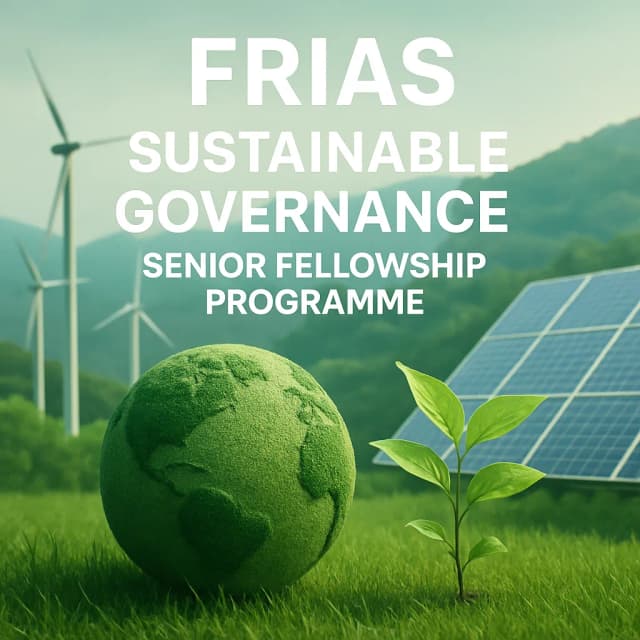American Council of Learned Societies Fellowships
ACLS invites research proposals from scholars in all disciplines of the humanities and interpretive social sciences. In the 2025-26 competition cycle, the program will award up to 60 fellowships to scholars across all stages of the scholarly career. Approximately half of this year's awards will support early-career scholars.
📖 About American Council of Learned Societies Fellowships
ACLS invites applications from scholars pursuing research on topics grounded in any time period, world region, or humanistic methodology. The ultimate goal of the project should be a major piece of scholarly work by the applicant, which can take the form of:
- Monographs
- Articles
- Publicly engaged humanities projects
- Digital research projects
- Critical editions
- Other scholarly resources
Note: This program does not fund works of fiction, textbooks, straightforward translations (without significant scholarly interpretation), or projects primarily pedagogical in focus.
ACLS is committed to inclusive excellence, defined as the pursuit of academic excellence enriched by a plurality of backgrounds, experiences, and perspectives. Fellows are selected to represent the variety of humanistic scholarship across all fields of study.
🎁 Benefits
- Fellowship stipend: $60,000 for a 12-month fellowship. Awards of shorter duration will be prorated at $5,000 per month, with the minimum award set at $30,000.
- Award supplements: Between $3,000-$6,000 for independent scholars, adjunct faculty, and faculty with teaching-intensive roles. These supplements can cover costs incurred during the fellowship term, including:
- Research support
- Manuscript development workshops
- Learned society conference attendance
- Health insurance
- Child- or eldercare
✅ Eligibility Criteria
Applicants must:
- Be US citizens, permanent residents, Indigenous individuals residing in the United States through rights associated with the Jay Treaty of 1794, DACA recipients, asylees, refugees, or individuals granted Temporary Protected Status in the United States. Foreign nationals who have been living in the United States or US territories for three or more years before the application deadline are also eligible, provided they do not establish permanent residence outside the United States during the fellowship period.
- Have earned a PhD in the humanities or interpretive social sciences no later than the application deadline. (Established scholars who can demonstrate the equivalent of a PhD through publications and professional experience may also qualify.)
- For tenure-track applicants (tenured or untenured): Have had a lapse of at least two years between the end of their last supported research leave of a semester or more and September 1, 2026.
- Devote six to twelve months to full-time research and/or writing during the award period, to be initiated between July 1, 2026, and July 1, 2027, and completed by December 31, 2027.
📝 Application Process
Applications must be submitted online and include the following components:
- Completed application form
- Proposal: No more than five pages, double spaced, in Arial or Helvetica 11-point font (inclusive of footnotes or endnotes).
- Optional supporting materials: Up to two additional pages of images, musical scores, or other similar non-text materials.
- Work plan: No more than one page, double spaced, or in a timeline/chart format. The work plan should outline the work to be undertaken during the fellowship term and demonstrate how it fits into the overall trajectory of the project.
- Bibliography: No more than two pages, single spaced, without annotation.
- Publications list: No more than two pages, single spaced.
- Personal statement: Up to one page, double spaced, describing your intellectual trajectory as a scholar.
- Writing sample: No more than eight pages total, double spaced, including footnotes or endnotes, with a brief description of context and the sample’s relation to the proposed project.
- Formatting guidelines: All uploads must have margins of one inch on all sides. Text in the body of the proposal and writing sample must be double spaced and in 11-point Arial or Helvetica font. Footnotes may be in 10-point font and single spaced.
Note: In the 2025-26 competition year, this program will not accept reference letters.
Applications that do not adhere to stated formatting guidelines will be excluded from review.
📅 Application Deadline
September 25, 2025
🔍 Evaluation Criteria
Peer reviewers evaluate proposals based on the following criteria:
- Advancement of the field: The potential of the project to make an original and significant contribution to knowledge.
- Quality and innovation: The proposal’s methodology, scope, theoretical framework, and grounding in relevant scholarly literature. ACLS welcomes applications that challenge scholarly orthodoxy.
- Feasibility: The likelihood that the applicant will execute the work within the proposed timeframe.
- Scholarly record and career trajectory: Taking into account relative advantages and constraints on resources for the proposed project and over the course of the applicant’s career.
- Commitment to inclusive excellence: The enhancement of scholarship through the inclusion of diverse perspectives, backgrounds, and experiences.
🌐 Application Portal
- View details of American Council of Learned Societies Fellowships
- Apply for American Council of Learned Societies Fellowships
For more information, visit the FAQs.
- Fellowship stipend set at $60,000 for a 12-month fellowship.
- Awards of shorter duration will be prorated at $5,000 per month, with the minimum award set at $30,000.
- ACLS provides award supplements of between $3,000-$6,000 for independent scholars, adjunct faculty, and faculty with teaching-intensive roles for costs incurred during the fellowship term, including research support, access to manuscript development workshops, learned society conference attendance, health insurance, or child- or eldercare.










